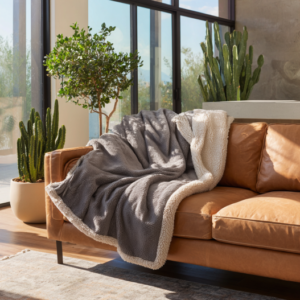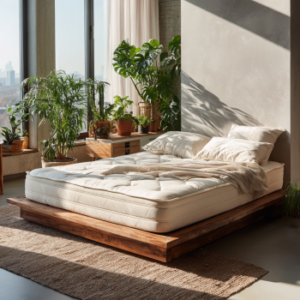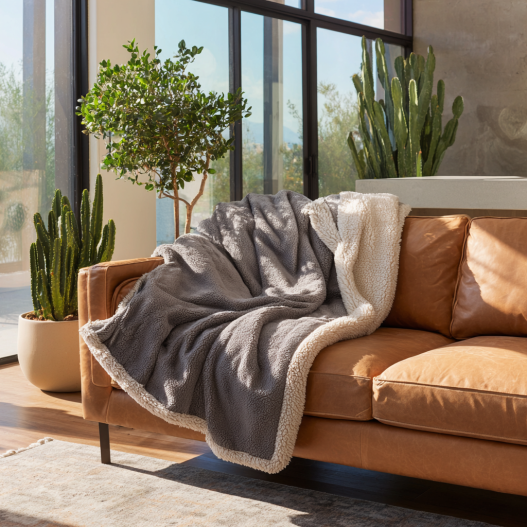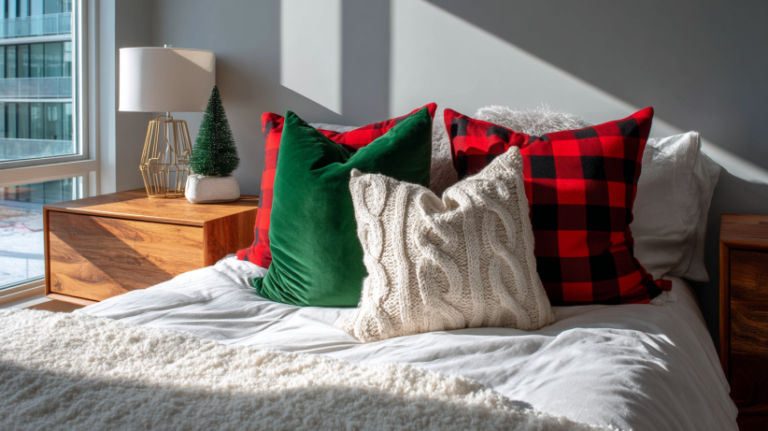Bamboo vs Cotton Sheets Compared for Comfort
Choosing between bamboo vs cotton bedding is more than just a matter of taste—your decision can impact your sleep, your health, and even the planet. In this warm, expert guide, we’ll answer all your key questions about bamboo vs cotton bedding so you can make the best choice for your comfort and the environment. For a broader fabric overview, start with our complete guide to bedding materials and benefits.
Key Takeaways
Bamboo vs cotton bedding comes down to balancing eco-friendliness, comfort, cost, and health benefits for your unique needs.
- Bamboo bedding offers exceptional softness, moisture-wicking, and is often more eco-friendly.
- Cotton bedding remains a timeless favorite for breathability and affordability—especially in organic options.
- Bamboo vs cotton bedding is about balancing comfort, sustainability, and cost to match your unique needs.
- Bamboo’s durability and resistance to allergens give it an edge for humid climates and allergy-prone sleepers.
- Cotton’s wide range of qualities and price points means there’s an option for every budget and style.
- Look for organic and certified materials to maximize eco-friendliness, whichever you choose.
Understanding Bamboo and Cotton Bedding
Summary: Bamboo vs cotton bedding starts at the source—bamboo is fast-growing and processed into smooth, breathable fabric, while cotton is a traditional favorite for softness and airflow. Certifications and processing methods influence sustainability and feel.
When comparing bamboo vs cotton bedding, it’s helpful to understand what sets these materials apart from the moment they’re grown. Bamboo bedding comes from the fast-growing bamboo plant—a grass that can shoot up over a meter per day, needing little water or pesticides. After harvesting, bamboo is processed into fibers, creating fabrics that are smooth, breathable, and naturally hypoallergenic.
Cotton, meanwhile, is a classic in the world of textiles. For generations, cotton bedding has been loved for its natural softness and breathability. But there’s a catch: conventional cotton farming is water-intensive and often relies on pesticides. Fortunately, organic cotton is becoming more available, grown without harmful chemicals and under strict eco-friendly standards.
Both bamboo and cotton are plant-based, renewable resources. However, how they’re processed and the certifications they carry make a big difference in their environmental impact and feel.
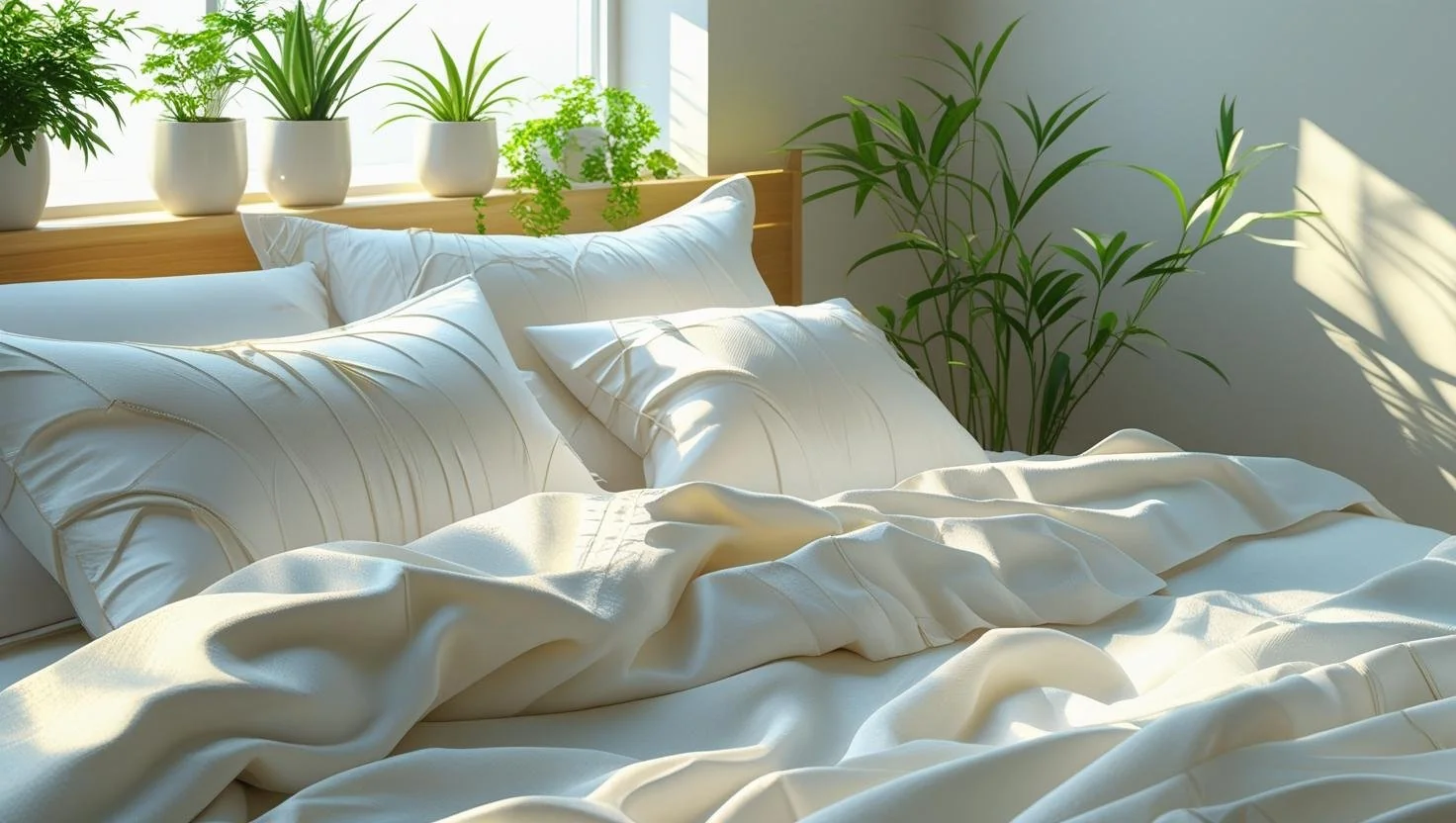
Comfort and Feel: Bamboo vs Cotton
Summary: Bamboo feels silky, lightweight, and cool; cotton delivers familiar crispness and breathability. Hot sleepers often prefer bamboo, while cotton percale offers a cool, classic hand feel.
One of the first things you’ll notice when you slip into bamboo vs cotton bedding is the feel. Bamboo bedding is prized for its silky-smooth touch—often compared to cashmere or silk, but with added breathability. If you’re a hot sleeper or live in a humid area, bamboo sheets’ natural moisture-wicking properties keep you dry and cool all night. Many people with sensitive skin or allergies report fewer flare-ups with bamboo bedding, thanks to its hypoallergenic qualities.
Cotton sheets, especially those made from long-staple or organic cotton, are cozy and crisp—like slipping into your favorite soft T-shirt. Cotton allows excellent airflow, and higher thread counts can boost that luxurious feel. However, not all cotton is created equal; lower-quality or blended cotton might feel rougher or less breathable. If you’re deciding on weave, visit our quick primer on percale vs. sateen sheets.
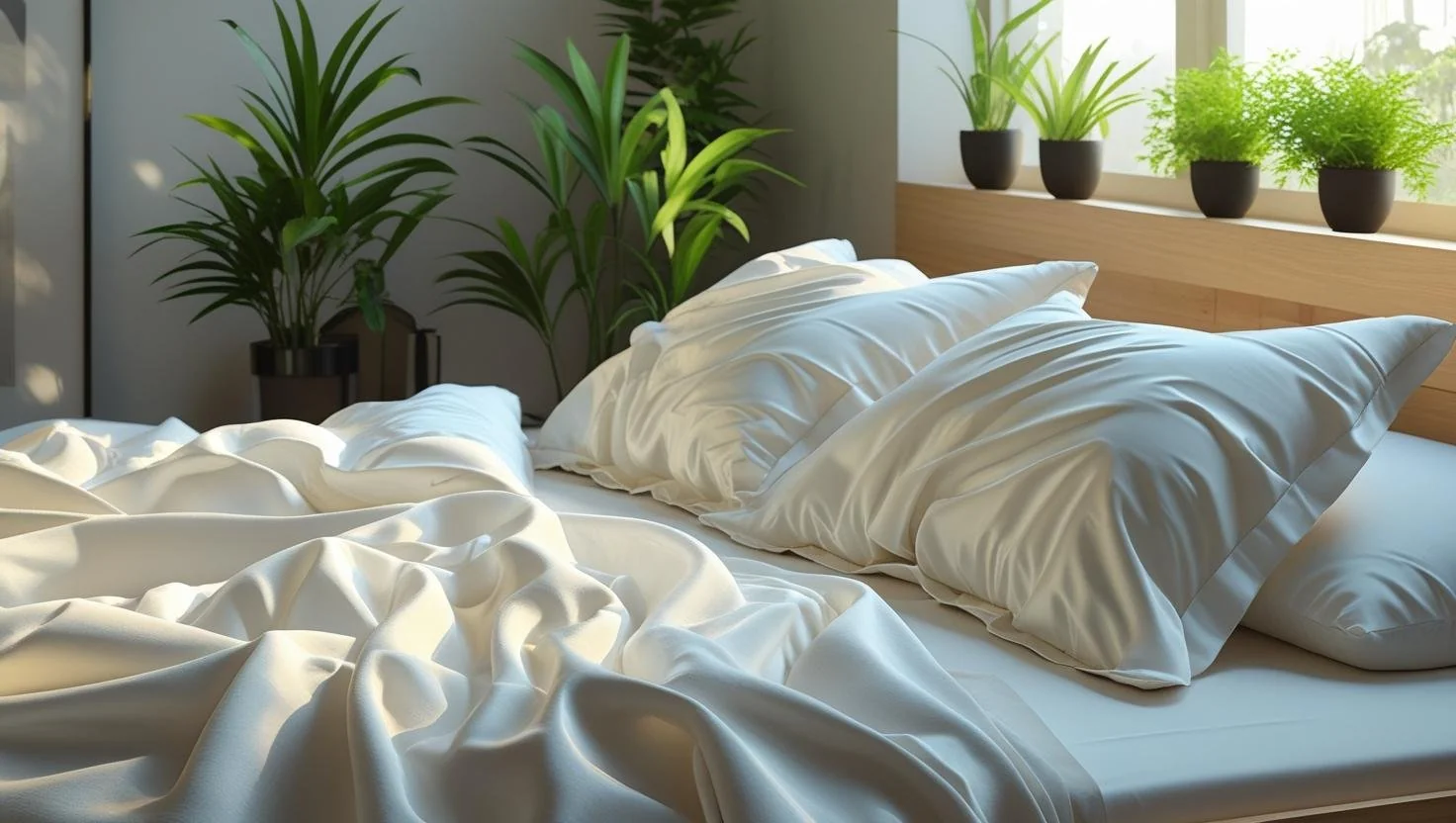
Durability and Maintenance
Summary: Both can be long-lasting with proper care. Bamboo resists wear and allergens; quality cotton holds up for years when washed gently and dried on low.
How long your bedding lasts—and how easy it is to care for—can make a big difference in your nightly comfort and your wallet. When comparing bamboo vs cotton bedding, bamboo bedding is surprisingly tough despite its softness. Thanks to strong fibers, bamboo sheets can handle frequent washing and hold their shape, softness, and vibrant color over time. Plus, bamboo’s natural resistance to bacteria, mold, and mildew makes it a smart pick for humid climates or anyone prone to allergies.
Cotton bedding can be very durable, especially in higher thread counts and weaves like percale or sateen. However, cotton can sometimes wear thin, pill, or fade if it’s lower quality or washed in hot water. Following care instructions is essential: both bamboo and cotton bedding should be washed in cool or warm water and dried on low to preserve their best qualities. For both, avoiding bleach and fabric softeners extends the life of your sheets.
If easy upkeep and lasting softness are priorities, bamboo may have a slight edge. Still, well-made cotton sheets can last years with proper care.
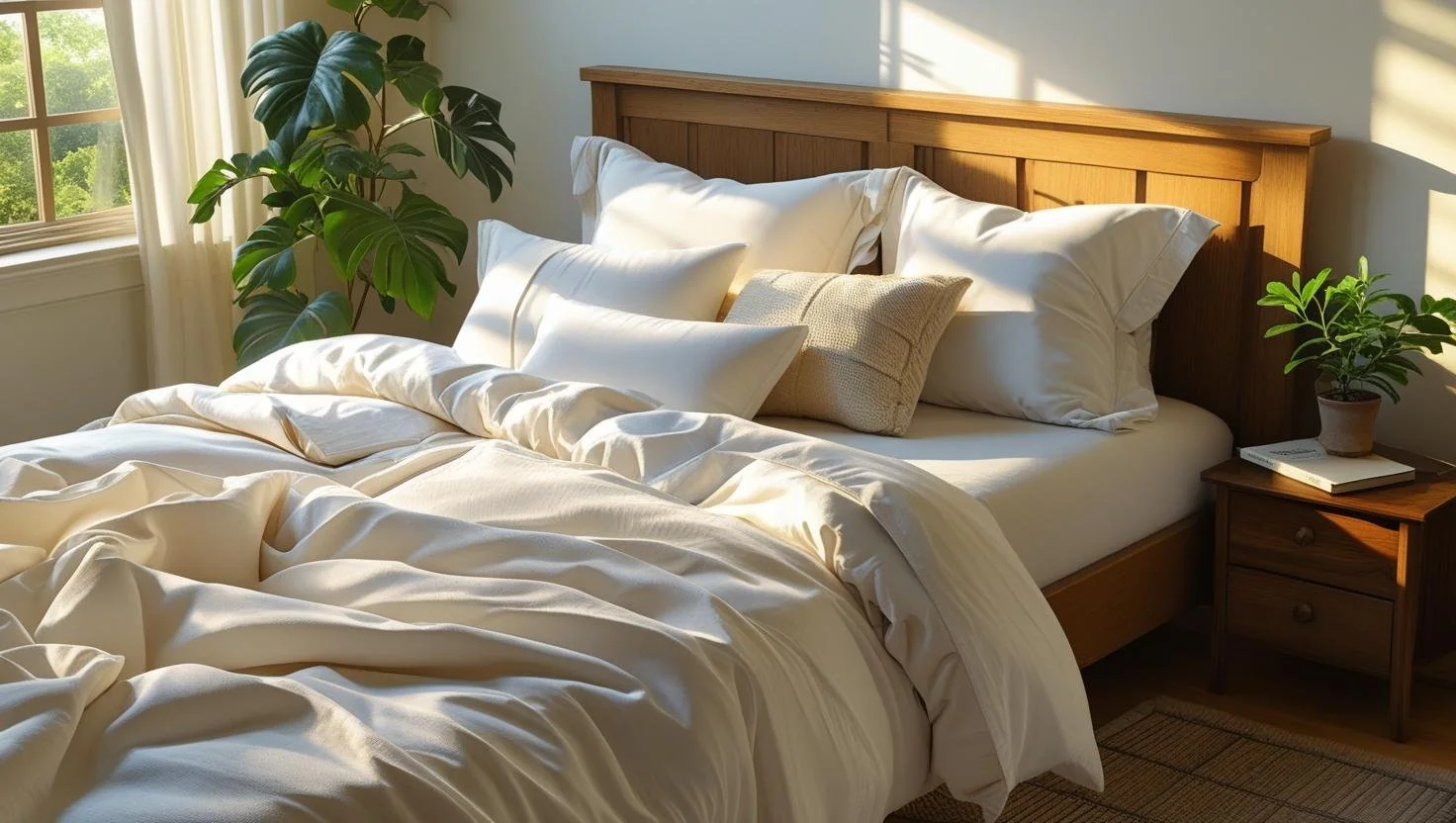
Eco-Friendliness and Sustainability
Summary: Bamboo is highly renewable and low-impact to grow; organic cotton is a greener alternative to conventional cotton. Certifications like GOTS and OEKO-TEX help you verify safer choices.
Eco-conscious shoppers often face the bamboo vs cotton bedding question for sustainability. Bamboo wins points for its rapid growth, minimal water use, and lack of pesticides during cultivation. Its dense root systems also prevent soil erosion and help store carbon, making bamboo an environmental superstar. When processed mechanically (rather than with harsh chemicals), bamboo sheets are among the most sustainable choices available.
Cotton, on the other hand, can be tough on the planet—especially conventional cotton, which uses significant water and often relies on pesticides. However, organic cotton bedding is a much greener alternative. Certified by standards like GOTS, organic cotton is grown without synthetic chemicals, protecting soil and water health.
To truly go green with bamboo or cotton, look for certifications (like OEKO-TEX or GOTS) and brands that are transparent about their sourcing and processing. For more sustainable bedding choices, check out our guide to eco-friendly bedding materials or our roundup of sustainable bedding brands.
Cost Considerations
Summary: Bamboo often costs more upfront; cotton spans a wide price range. Quality and certifications drive price for both, and longevity can offset initial cost.
Price matters, especially when investing in bedding that’s both comfortable and eco-conscious. In the bamboo vs cotton bedding debate, bamboo bedding usually costs a bit more upfront due to processing and material costs. However, many find that bamboo’s durability and long-lasting softness mean you buy new sheets less often—potentially saving money in the long run.
Cotton bedding is available in a wide range of prices. Budget-friendly options exist, but these are often made from blended or lower-grade cotton, which can wear out faster. Higher-quality organic cotton bedding may cost as much as bamboo, but for many, it’s worth it for the comfort and sustainability. Want to compare beyond just these two? Explore our bedding material benefits guide for a bigger picture view.
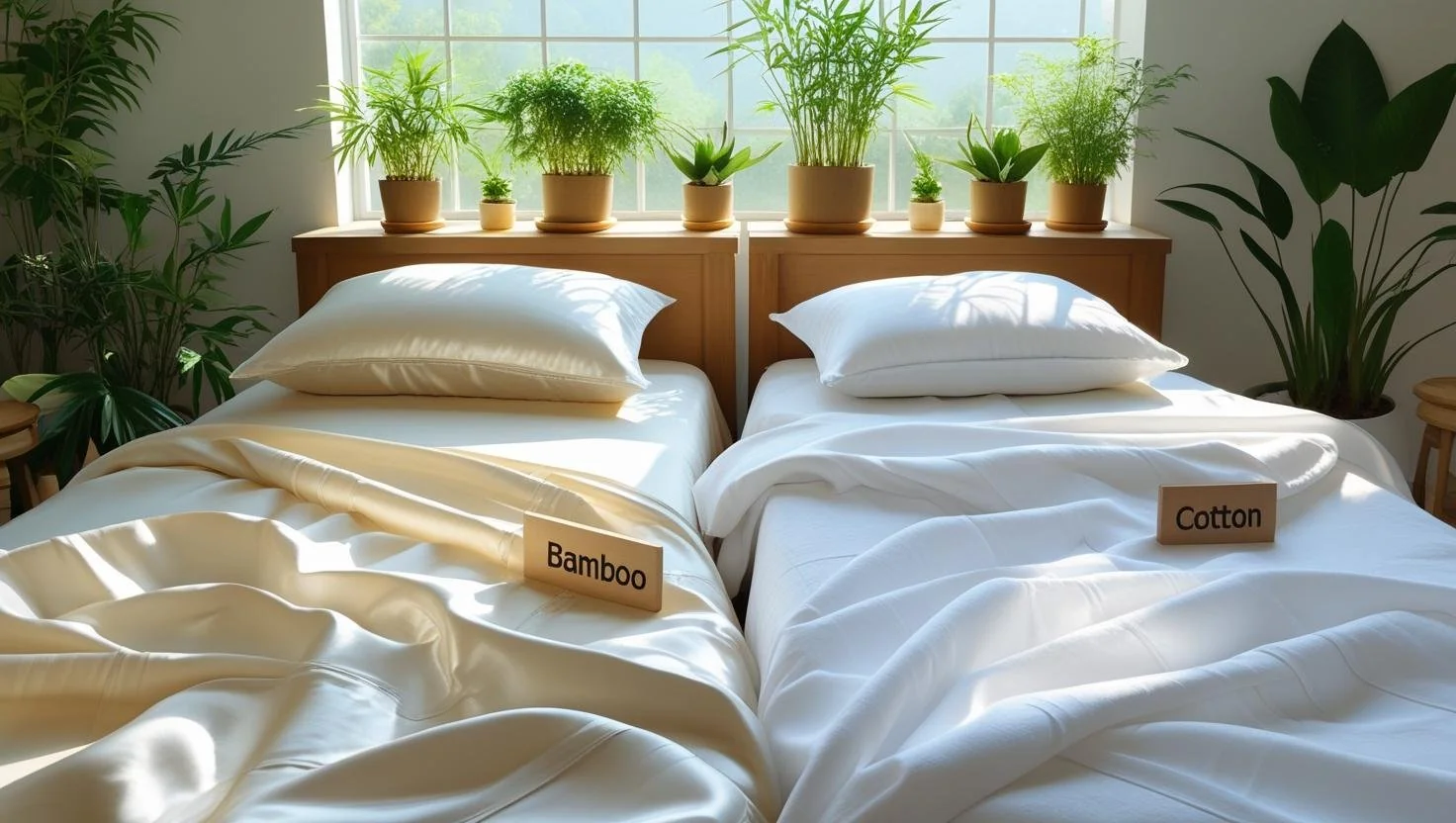
Health and Allergy Benefits
Summary: Both can be gentle on sensitive skin; bamboo is naturally moisture-wicking and antimicrobial, while organic cotton avoids harsh chemicals. Certifications reduce irritants.
For those with allergies or sensitive skin, the right bedding can make all the difference. Bamboo bedding is naturally hypoallergenic, with antimicrobial and moisture-wicking properties that help keep dust mites and mold at bay. Many sleepers notice fewer skin irritations and reduced allergy symptoms with bamboo sheets—especially compared to synthetic blends.
Cotton, particularly organic cotton, is also a safe bet for sensitive skin, as it’s breathable and contains no harsh chemicals. However, some people may be sensitive to residues from non-organic cotton farming or certain dyes. Always check for OEKO-TEX or GOTS certifications to ensure your bedding is free of irritants. For more tips, visit our guide to bedding and allergies and our best bedding for hot sleepers.
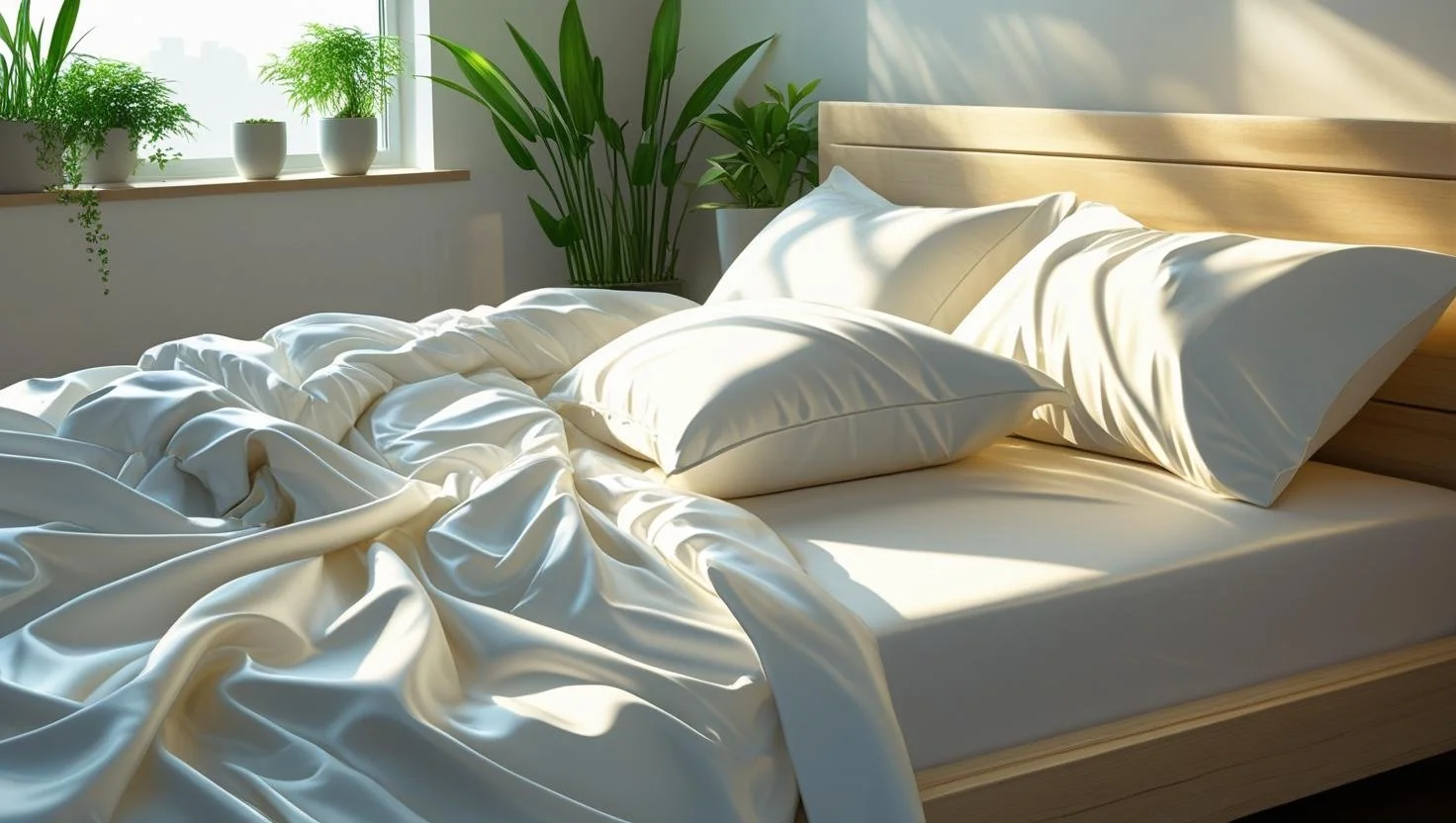
Style, Colors, and Design Options
Summary: Both offer wide color and pattern ranges. Bamboo holds dye well for lasting color; cotton spans classic whites to bold prints for any aesthetic.
A beautiful bedroom is about more than just comfort—it’s about style and self-expression. Both bamboo and cotton sheets come in a wide range of colors, patterns, and finishes. Bamboo sheets tend to hold dye well, so colors stay vibrant wash after wash. You’ll often find them in soft, nature-inspired hues that fit any decor. Cotton bedding is incredibly versatile, from classic whites and cool blues to bold prints and textures.
Whether your style is minimalist, bohemian, or somewhere in between, there’s a bamboo or cotton set that matches your vision. And if you want to learn how to layer and style your bed like a pro, check out our layering and bedding materials guide for easy inspiration.
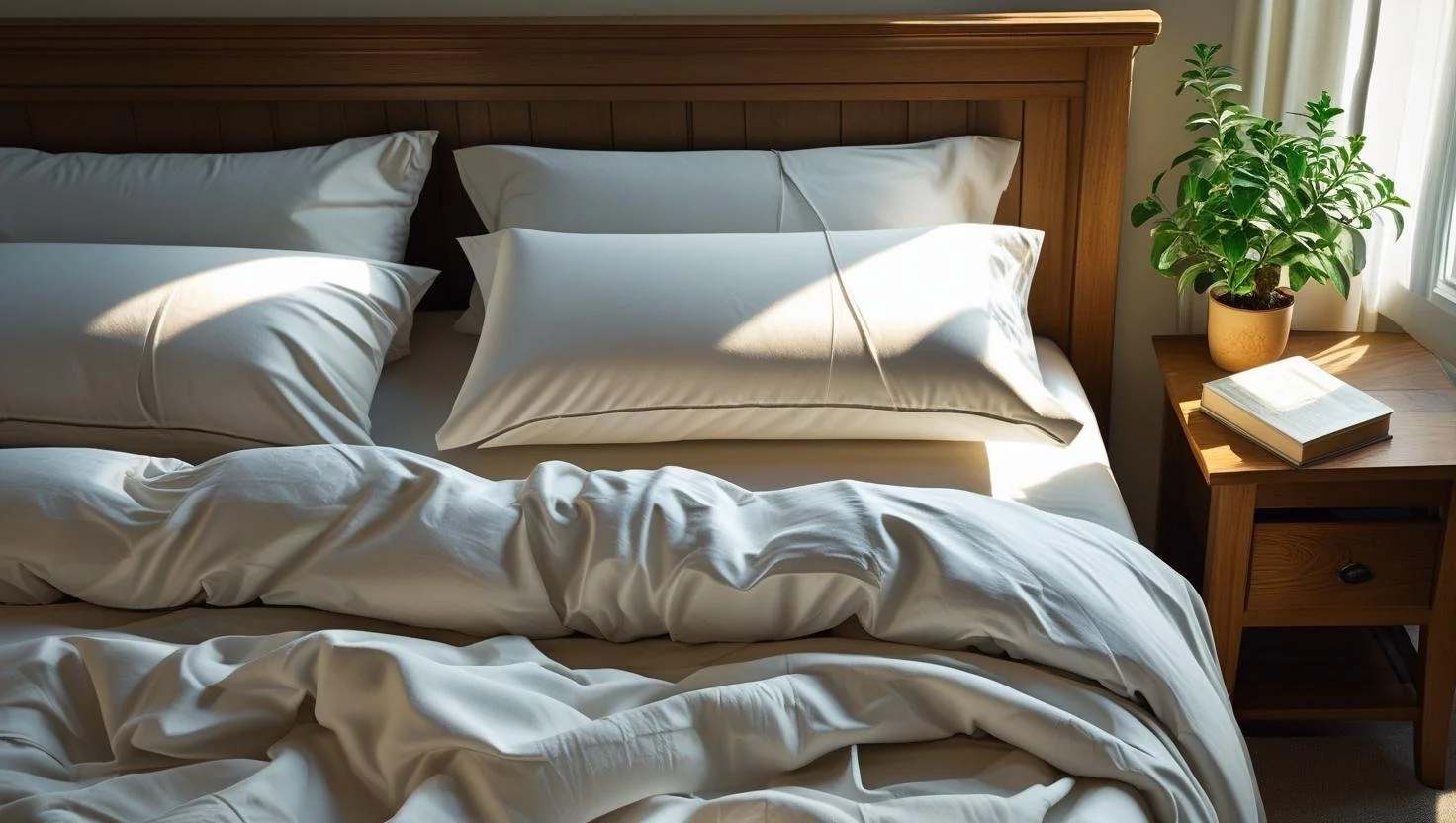
Real-Life Experiences: What Sleepers Say
Summary: Bamboo gets raves for coolness and easy care; cotton fans love the familiar crisp feel that softens with every wash.
Curious how bamboo vs cotton bedding compares in everyday use? Real-life reviews offer helpful insights. Many bamboo bedding fans rave about the cool, barely-there feel on hot nights and the ease of care. Parents often note how quickly bamboo sheets dry—handy for busy households. Meanwhile, cotton loyalists love the familiar, crisp sensation and how cotton bedding softens even more over time.
If you tend to overheat or struggle with allergies, bamboo bedding might be the hero you’ve been seeking. If you’re after that cozy, fresh-laundry feel and classic style, you can’t go wrong with high-quality cotton sheets.
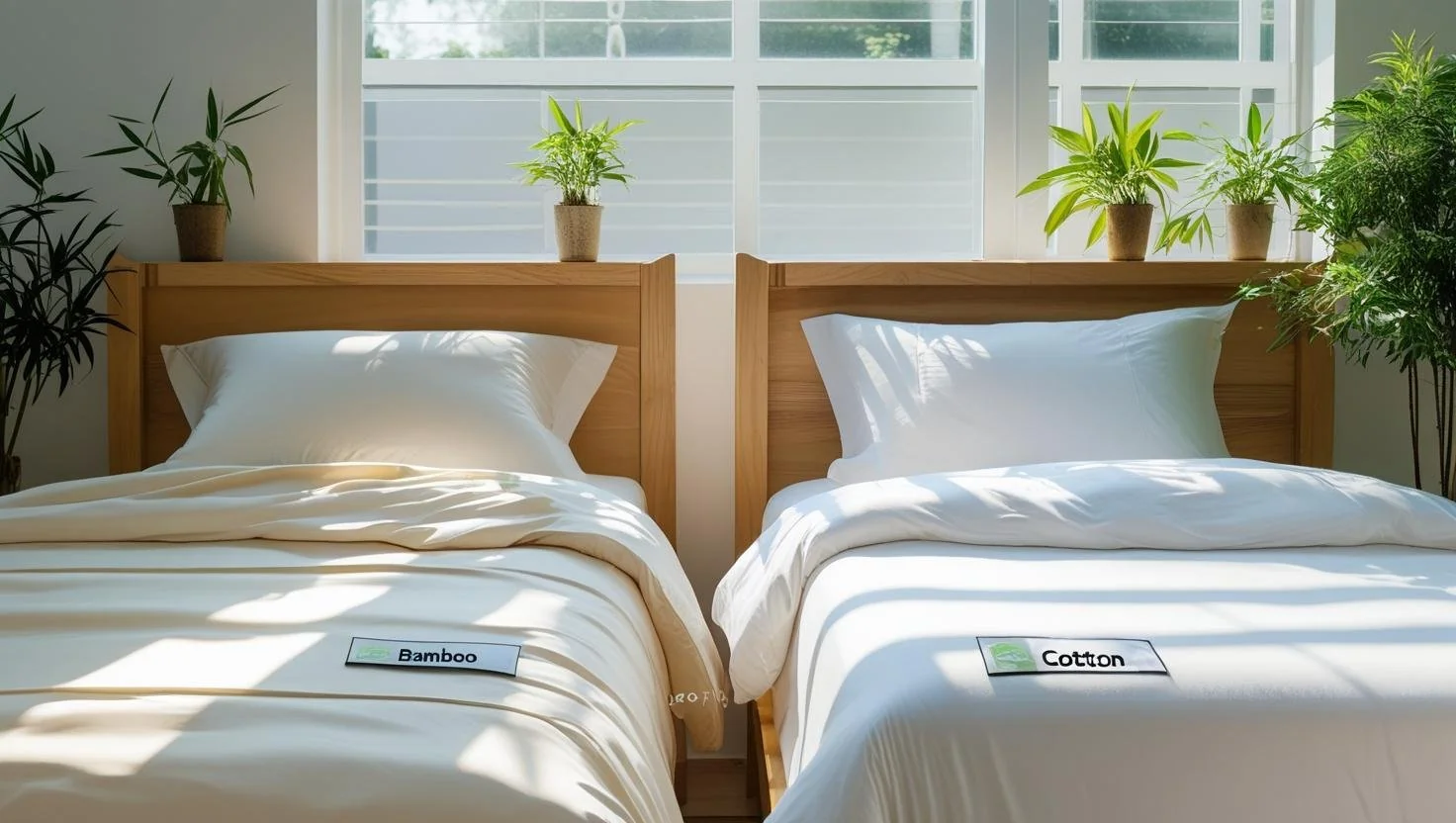
Conclusion
Ultimately, bamboo vs cotton bedding is about finding what works best for you—bamboo for silky sustainability, or cotton for classic, customizable comfort.
Deciding between bamboo vs cotton bedding comes down to what matters most to you: eco-friendliness, comfort, style, or budget. Bamboo offers a silky-smooth, hypoallergenic experience with standout sustainability, while cotton brings time-tested comfort and a world of design choices—especially in organic varieties. Both can help you create a healthier, cozier bedroom, so trust your priorities and enjoy the journey! For more fabric-by-fabric advice, browse our guide to bedding material choices.
FAQ
- Is bamboo or cotton better for hot sleepers?
- Bamboo vs cotton bedding for hot sleepers: Bamboo is cooler and more moisture-wicking, making it a top choice for hot sleepers, while cotton is breathable but some blends may retain heat. Percale weave organic cotton is also excellent for coolness.
- Which is more sustainable: bamboo or cotton?
- Bamboo vs cotton bedding in sustainability: Bamboo is usually more sustainable due to rapid growth and low water use, but organic cotton is also eco-friendly when certified. Always check for responsible processing with both.
- Does bamboo bedding last as long as cotton?
- Yes, both bamboo vs cotton bedding can be highly durable. Quality bamboo bedding resists wear and tear, while good cotton sheets can last years with gentle care.
- Is bamboo bedding hypoallergenic?
- Bamboo bedding is naturally hypoallergenic and antimicrobial, making it a great choice for allergy-prone sleepers. Organic cotton is also hypoallergenic if processed without chemicals.
- How do I care for bamboo vs cotton sheets?
- Bamboo vs cotton bedding care: Wash both in cold or warm water, dry on low, and avoid bleach or fabric softeners to keep sheets soft and long-lasting. Use gentle, eco-friendly detergents for best results.
Learn more in our deep dive into bamboo bedding, organic cotton buying tips, and bedding recommendations for hot sleepers.
Related reading from Cozy Bed Quarters
- Bedding Materials & Benefits: How Each Fabric Feels and Performs
- Best Bedding Materials for Hot Sleepers
- Sustainable Bedding Brands Worth a Look
Other reading we found popular
- Pros and cons of bamboo sheets — Sleep Foundation
- Bamboo vs. cotton sheets explained — The Spruce
- What to know before buying bamboo sheets — Architectural Digest
- Bamboo vs cotton: key differences — Eachnight


